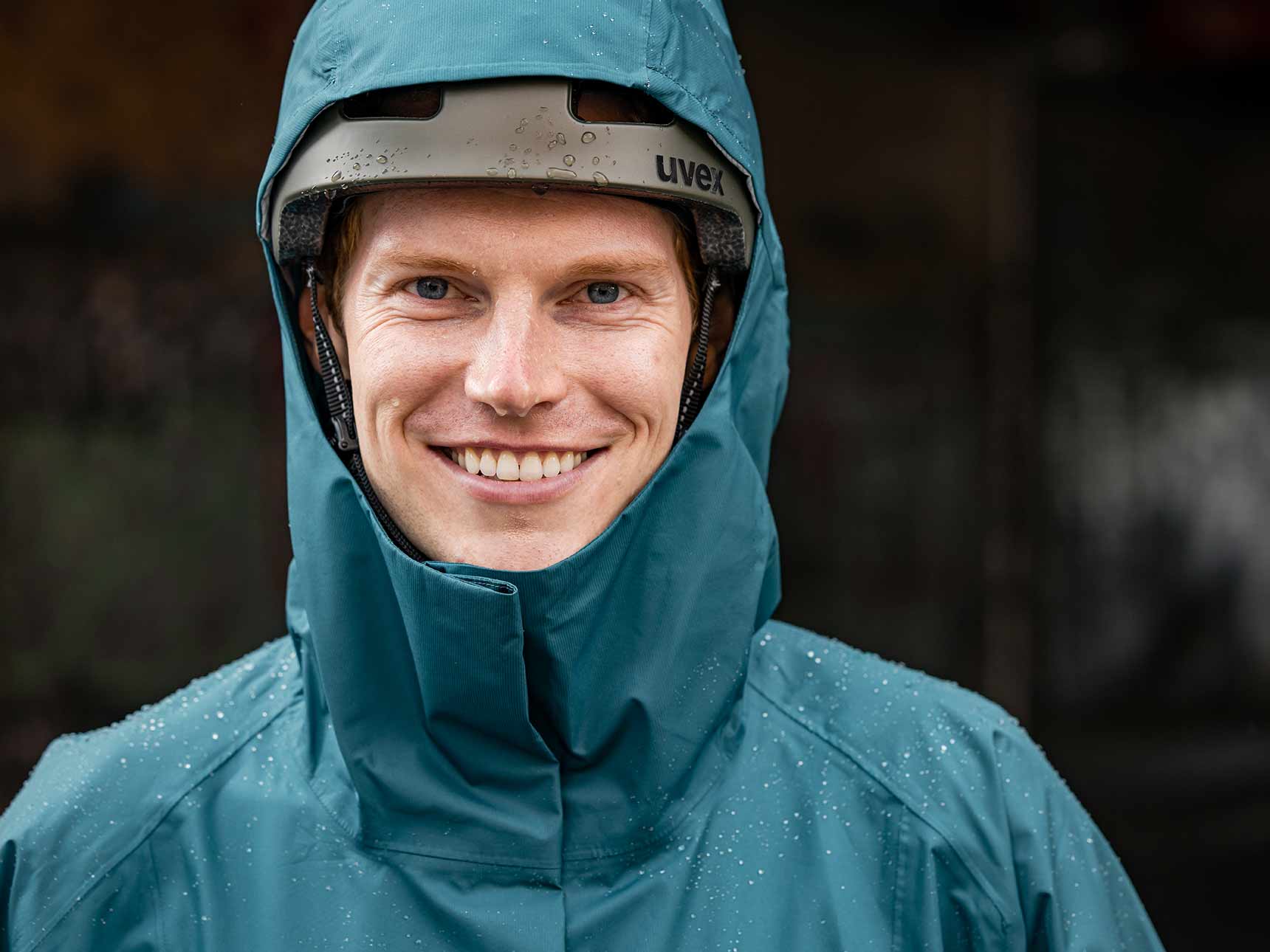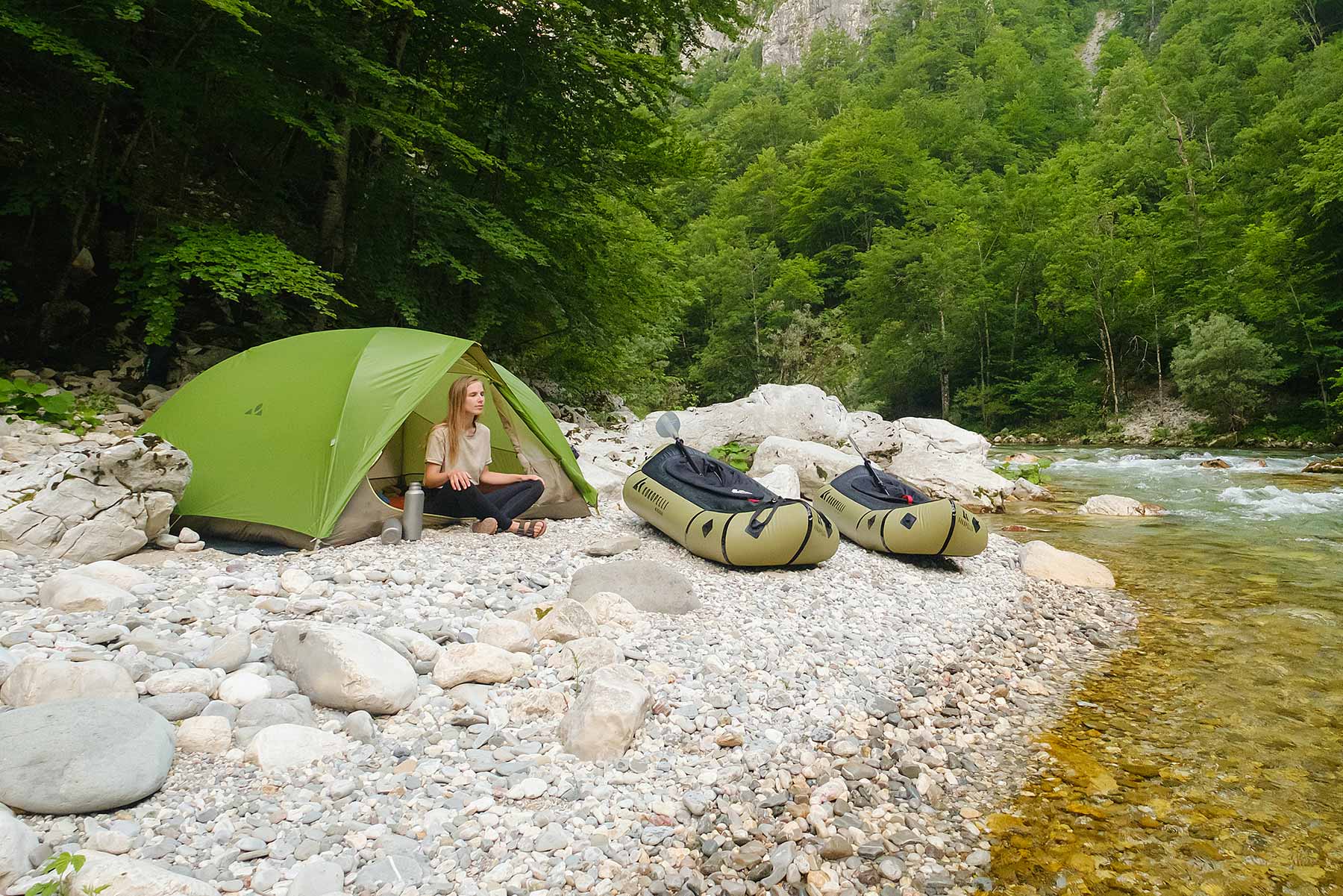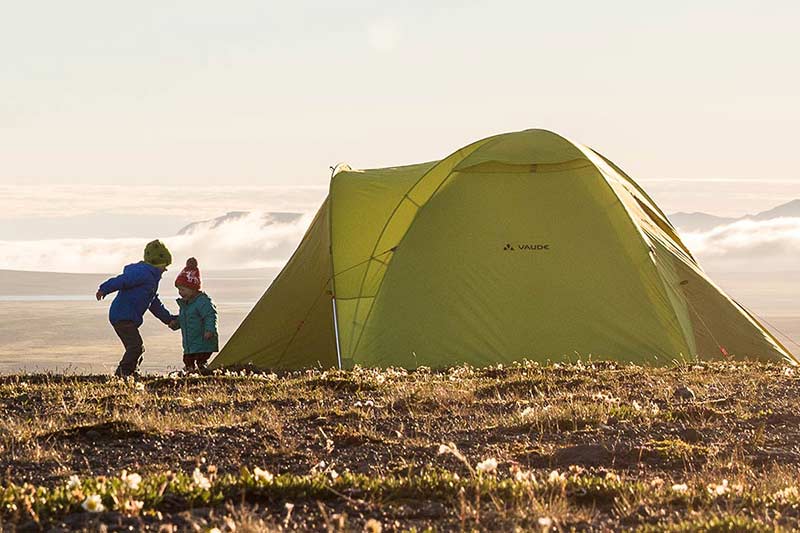Find your way - with hiking equipment for real nature moments.
Out in any weather - with PFAS-free rainwear from VAUDE!
Who made my clothes? We take responsibility. Not only on Fashion Revolution Day.
Repair it yourself or have it repaired - both extend the life of your favorite items.
- Skomer hoodie women’s€116.00Incl. VAT, plus shipping free delivery
Newly developed for textile recycling loop
- Neyland hoodie men's€116.00Incl. VAT, plus shipping free delivery
Newly developed for textile recycling loop
- Skomer Zip 22 liters hiking backpack women's€126.00Incl. VAT, plus shipping free delivery
With recycled PET bottles
- Brenta 30 liters hiking backpack€158.00Incl. VAT, plus shipping free delivery
With recycled PET bottles
- Allround Taurus backpacking tent 1 person€273.00Incl. VAT, plus shipping free delivery
With recycled material
- Allround Mark backpacking tent 3 Persons€525.00Incl. VAT, plus shipping free delivery
Protects eco-friendly from rain - fully without PFC
- Skomer hoodie women’s€116.00Incl. VAT, plus shipping free delivery
Newly developed for textile recycling loop
- Neyland hoodie men's€116.00Incl. VAT, plus shipping free delivery
Newly developed for textile recycling loop
- Skomer Zip 22 liters hiking backpack women's€126.00Incl. VAT, plus shipping free delivery
With recycled PET bottles
- Brenta 30 liters hiking backpack€158.00Incl. VAT, plus shipping free delivery
With recycled PET bottles
- Allround Taurus backpacking tent 1 person€273.00Incl. VAT, plus shipping free delivery
With recycled material
- Allround Mark backpacking tent 3 Persons€525.00Incl. VAT, plus shipping free delivery
Protects eco-friendly from rain - fully without PFC
Newsletter
Get a 10% discount on your next purchase in the VAUDE online store - simply subscribe to the newsletter!
Get informed about offers and news from the VAUDE world!
Find a retailer
Would you like to shop locally? You can find a local VAUDE retailer here.
In many of these shops, you can find out immediately which products they have in stock.
VAUDE online shop: Your sustainable outdoor equipment supplier
Do you love the mountains, nature and simply being outdoors? At VAUDE, we do too! That is why we supply you with the ideal equipment for your next outdoor adventure. In the VAUDE online shop, you will find clothing for Hiking , Mountaineering , Ski touring and Cycling for the entire family. Robust bags and backpacks for biking, hiking or everyday life are available from the VAUDE online shop, as well as tents, sleeping bags and everything you’ll need for a good time outdoors. In addition, outdoor equipment from VAUDE is sustainable and manufactured fairly. Let’s protect what we love together! If we join together and try to pollute our environment less and conserve resources, we will be able to make the future of our planet a bit better. This is the goal that drives VAUDE.
VAUDE outdoor clothes: from caps to cycling boots
If you love being active outdoors, you need clothes that protect you against the weather: rain, snow, wind and mud, but also the sun. Outdoor clothes from VAUDE provide you sufficient freedom of movement for the sport you love, and are also robust and breathable. Ambitious mountain climbing, ultra-light trekking, backcountry skiing, bikepacking around Europe, or riding your bike to work every day – the list of the options for spending time in the fresh air is long. This is why you will find equipment from winter caps to outdoor socks in the VAUDE online shop, and everything in between: base layer, mid layer, hard shell, plus trousers, jackets, t-shirts and much more.
VAUDE backpacks and bags: your durable companion
When it comes to bags and backpacks from VAUDE, you can be certain that they will be around for a long time. We rely on environmentally friendly materials and also value the fact that regardless of how robust it is, our equipment can be repaired when it shows signs of age. At VAUDE, sustainability also means: using products for a long time and repairing them. For example, you can use VAUDE bike bags and hiking backpacks for many years if you take good care of them.
Sustainable materials at VAUDE
To ensure that our products are sustainable, we are open to making changes at VAUDE. Our use of recycling materials helps to conserve resources and save energy. It is also important to us that VAUDE products are produced under fair conditions. To ensure that our production processes and the materials we use are transparent for you as consumers, at VAUDE we rely on seals like the Green Button, are a member of the Fair Wear Foundation and have the Green Shape label, which has more rigorous evaluation criteria then all the other seals. You can find out more about our seals, climate neutrality and the VAUDE sustainability principles here.










